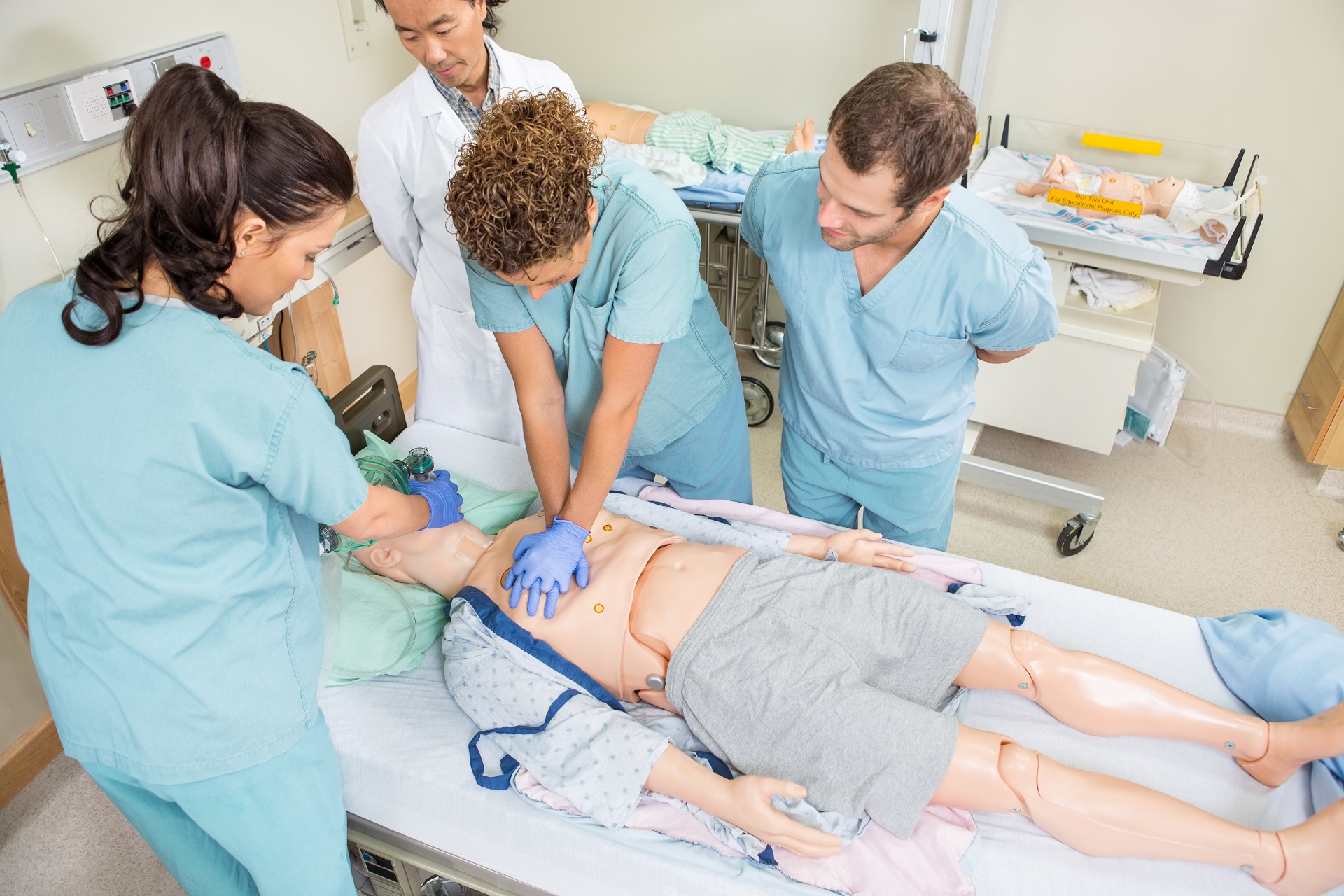School Policies and Regulations
Leave: A student may request a leave of absence from the EMT, Advanced EMT, or Paramedic Program. A leave of absence will only be granted when documentation is submitted to the Manager attesting to a medical or family emergency, or military activation. An approved leave of absence will allow the student to re-apply to the following program. Tuition paid will be credited to the following program. In certain circumstances, a tuition adjustment may be required. A student is required to have maintained satisfactory academic and clinical standards to be eligible for the leave of absence.
Class and Clinical Absences: NEEMSI Programs require active participation from each student. This participation applies equally to all phases of the program, including didactic, clinical, and field experiences. Students are required to attend 100% of didactic, clinical, and field experiences. Absence from a scheduled class is not allowed. Make-up hours will be coordinated by the EMS Educator or the Clinical Coordinator.
Tardiness and Leaving Early: Tardiness of more than fifteen (15) minutes or leaving early will constitute three hours of absence time.
Make-Up Work: Make-up work will be allowed for an absence within seven days and when scheduled by the Course Coordinator. A missed quiz or exam must be completed during regular office hours or student hours, as set by the Course Coordinator.
Standards for Progress Required of the Student: Successful completion of each program requires a minimum final grade of eighty percent (80%). In programs with multiple semesters, or modules, an eighty percent (80%) average is required to advance to the next semester or module.
Credit for Previous Training and Certification: Credit for previous training and certification will be based upon guidelines of the National Registry of Emergency Medical Technicians and the New Hampshire Department of Safety, Bureau of EMS. The Manager, Course Coordinator, and Medical Manager will review requests for credit of previous experience or certification/license on an individual basis
Transfer Credits: The New England EMS Institute grants credits for all of our initial EMS education programs: EMT, AEMT, and Paramedic. Consult the school you are considering transferring to for credit transfer requirements.
Student Conduct: Guidelines for student conduct are to ensure that students conduct themselves in a manner that is consistent with the mission and philosophy of the New England EMS Institute. The following are student standards of conduct:
Students shall treat instructors, faculty, and classmates with respect and courtesy.
Due to the clinical environment and HIPAA regulations, total patient confidentiality is expected.
Pagers, cell phones, and portable radios are to be silenced in classrooms.
No student will be on duty or respond to calls while attending class.
Harassment: The New England EMS Institute will neither condone nor permit unwelcome verbal, nonverbal, or physical conduct based on sex, race, age, national origin, disability, or religion (including, but not limited to, jokes, sexual advances, requests for sexual favors, or display of sexually suggestive objects or pictures) by any student or faculty.
Student Grievance Guidelines:
In the event that a disciplinary or corrective action is to be initiated for a student, the Course Coordinator will give an oral warning at which time the student will be counseled to correct the behavior or action.
In the event that remediation does not correct the student’s action within the 3 day time frame designated, the student will receive a written warning and will be counseled regarding the possibility of removal from the classroom or clinical activities; thereby resulting in a failure of the course.
If continuation of the behavior occurs after the written warning, the student may be dismissed from the program.
The Manager reserves the right to go directly to written warnings and/or dismissal if the violation is of a serious nature.
Any student has the right to appeal the decision of the Course Coordinator and will be given a Grievance Report Form. Following completion, the Grievance Report Form is to be mailed to the New England EMS Institute Manager within 30 days of the disciplinary action to warrant arbitration.
Any student receiving disciplinary action may appeal the decision to the New England EMS Institute Manager. A grievance may ultimately be brought to the Program Advisory Board. The decision of the Program Advisory Board is final.
Any student suspended or in the appeal process will be immediately withdrawn from clinical rotations pending the outcome of the appeal process.
Complaint Process: Any student who has a complaint should approach their instructor. If the instructor achieves no satisfactory resolution within five calendar days, then the student may submit the complaint in writing to the Director via email: JArevalo@Elliot-hs.org. If the complaint process at the school is completed and found to be in favor of the school, the student may then contact the Office of Career School Licensing, Department of Education, 101 Pleasant St, Concord NH 03301, or (603) 271 6443 or https://my.doe.nh.gov/ESSWEB/HigherEducation/Complaint.aspx.
Smoke Free Environment: Smoking is prohibited within corporate owned or leased buildings and on all corporate grounds, including entrances to corporate buildings, with the single exception of designated outdoor smoking areas.
Weapons Policy: There is no weapons policy covering all patients, staff, students, and visitors. Off duty police, security officers, and others that may have a legal right to carry weapons are required to safely store that weapon in their vehicle or with security prior to class, practical, or clinical rotations.
